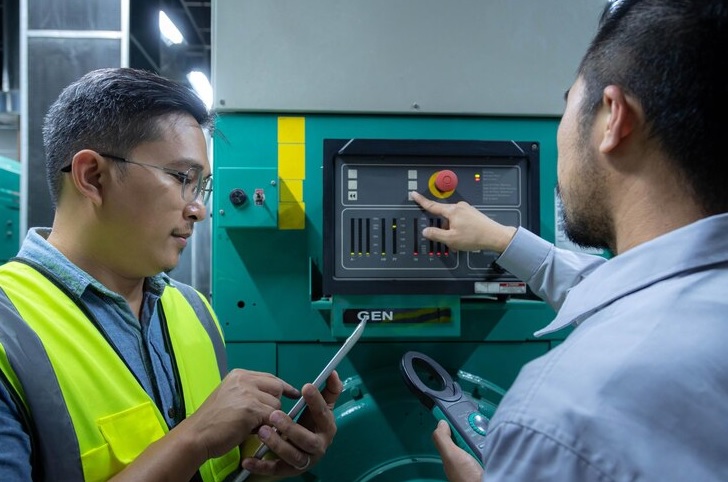In today’s industrial landscape, the need for accurate and reliable temperature monitoring is crucial. From manufacturing plants to energy facilities, maintaining optimal temperatures is essential to ensure safety, efficiency, and longevity of equipment. This is where heavy duty temperature sensors come into play. These robust devices are specifically designed to withstand harsh conditions and provide precise temperature readings, making them indispensable in various industrial applications.
What are Heavy Duty Temperature Sensors?
Heavy duty temperature sensors are specialized instruments built to measure temperature in challenging environments. Unlike standard temperature sensors, these devices are constructed to endure extreme temperatures, high pressures, corrosive substances, and mechanical stresses. They are commonly used in industries such as oil and gas, power generation, chemical processing, and heavy machinery, where accurate temperature monitoring is critical for both operational efficiency and safety.
Key Features of Heavy Duty Temperature Sensors
- Durability: One of the most significant features of heavy duty temperature sensors is their durability. They are typically made from high-grade materials like stainless steel, which can resist corrosion and withstand high temperatures and pressures.
- Precision: Despite the challenging conditions they operate in, heavy duty temperature sensors offer high accuracy in temperature measurement. This precision is crucial for processes that require tight temperature control to ensure product quality and safety.
- Versatility: These sensors come in various forms, including thermocouples, RTDs (Resistance Temperature Detectors), and thermistors, each suited for different temperature ranges and applications. This versatility allows industries to choose the best sensor type for their specific needs.
- Reliability: In industrial settings, reliability is paramount. Heavy duty temperature sensors are designed to provide consistent performance over long periods, reducing the need for frequent replacements and minimizing downtime.
Applications of Heavy Duty Temperature Sensors
Heavy duty temperature sensors are used across a wide range of industries due to their robustness and accuracy. Here are a few examples:
- Oil and Gas: In the oil and gas industry, monitoring temperature is essential for preventing equipment failure and ensuring safe operations. Heavy duty temperature sensors are used in drilling rigs, pipelines, and refineries to measure temperatures in extreme conditions.
- Power Generation: Power plants rely on heavy duty temperature sensors to monitor the temperature of turbines, boilers, and other critical equipment. Accurate temperature readings help in maintaining optimal performance and preventing catastrophic failures.
- Chemical Processing: In chemical plants, maintaining precise temperatures is crucial for ensuring the quality and safety of products. Heavy duty temperature sensors are used to monitor temperatures in reactors, storage tanks, and processing lines.
- Heavy Machinery: In industries that use heavy machinery, such as construction and mining, temperature sensors are vital for monitoring the health of equipment. These sensors help in preventing overheating and extending the lifespan of machinery.
Benefits of Using Heavy Duty Temperature Sensors
- Improved Safety: Accurate temperature monitoring helps in preventing accidents caused by overheating or equipment failure. This is particularly important in industries where high temperatures pose significant risks.
- Enhanced Efficiency: By providing precise temperature readings, heavy duty temperature sensors help in optimizing processes, leading to better product quality and reduced energy consumption.
- Cost Savings: The durability and reliability of these sensors mean less frequent replacements and maintenance, resulting in lower operational costs.
- Compliance: Many industries have stringent regulations regarding temperature monitoring. Using heavy duty temperature sensors ensures compliance with these standards, avoiding potential fines and legal issues.
Choosing the Right Heavy Duty Temperature Sensor
Selecting the appropriate heavy duty temperature sensor depends on several factors, including the temperature range, environmental conditions, and the specific application. It is essential to consider these factors to ensure the sensor can perform effectively in the intended environment.
When choosing a heavy duty temperature sensor, consider the following:
- Temperature Range: Ensure the sensor can accurately measure the temperatures encountered in your application.
- Environmental Conditions: Consider factors like pressure, humidity, and exposure to corrosive substances.
- Sensor Type: Choose between thermocouples, RTDs, or thermistors based on your accuracy requirements and temperature range.
- Installation Requirements: Ensure the sensor can be installed and maintained easily in your specific setup.
Conclusion
Heavy duty temperature sensors are vital components in industrial monitoring systems. Their ability to provide accurate and reliable temperature measurements in harsh environments makes them indispensable for ensuring safety, efficiency, and operational longevity. By understanding their features, applications, and benefits, industries can make informed decisions when selecting and using these robust sensors. Whether in oil and gas, power generation, chemical processing, or heavy machinery, heavy duty temperature sensors play a crucial role in maintaining optimal operations and safeguarding assets.




